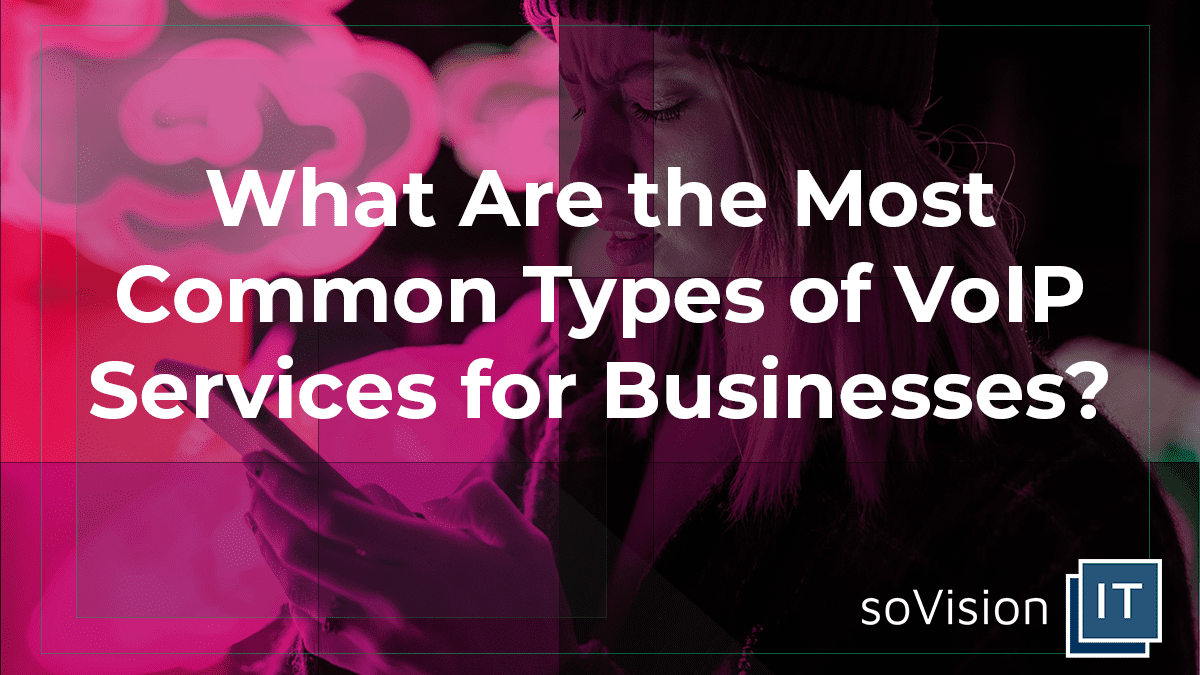What Are the Most Common Types of VoIP Services for Businesses?
VoIP services have grown in popularity, capability and users since they replaced the PABX and PBX systems that many buildings and businesses used in the past. These days, they come as large on-site replacements for these older systems or smaller desktop-based software solutions. They can also be hosted on-premises or by a service provider who ensures they work as expected and provide all the benefits businesses expect. With the assumption that VoIP services are essential for today’s businesses, what types of VoIP telephony services are available?
In-house VoIP Systems
These systems are found in both small and large businesses. For larger businesses, they use PBX and IP PBX systems for both in-house and outbound communications, but smaller companies typically install VoIP software on a server or a dedicated computer from where employees can access it.
A major component of these systems is the internet connection, where the connection is routed in place of an old PBX system to the systems that need it. The second is the handsets which should be capable of connecting to a VoIP service through the internet. These VoIP-capable headsets also have extended functionality over their PBX counterparts.
Businesses that use Session Initiation Protocol (SIP) technology can also connect smartphones and tablets to their VoIP system through software and apps installed on these devices. These devices act as telephone extensions so employees away from the office can access the VoIP system.
Hosted VoIP
Businesses that do not want to invest in in-house VoIP systems or hire specialists to support them can use a hosted VoIP service. Many companies also have agreements with other businesses to lease what they need so they have fixed, recurrent costs they can manage better.
The organisation hosting the system owns it and installs it on its premises. They then connect the system to the business needing the service using a communication line. The main downside of this option is that all incoming and outgoing communication from the business will be affected if its connection to the VoIP provider is severed. A common remedy for this is the business having a backup so communications can continue in the unlikely event this happens.
The hosting company uses the same equipment you would find in businesses using an in-house VoIP system, but the business has to buy headsets and ensure its network is robust enough to support VoIP.
An alternative is a business installing the system on its premises and then outsourcing its management, operations and supply to another firm.
Hybrid Systems
Some businesses want to keep their legacy systems while leveraging the benefits of newer VoIP systems and technologies. The problem with doing this is that the legacy system will break down and be harder to repair as time goes on. It will also be less functional or capable as VoIP systems get better. For these reasons, businesses using hybrid VoIP systems have to switch to in-house or hosted solutions at some point.
All three VoIP solutions and options have their benefits and downsides. A business’s choice of VoIP system will depend on cost, how much support they want and how much control it wants over its VoIP system.

